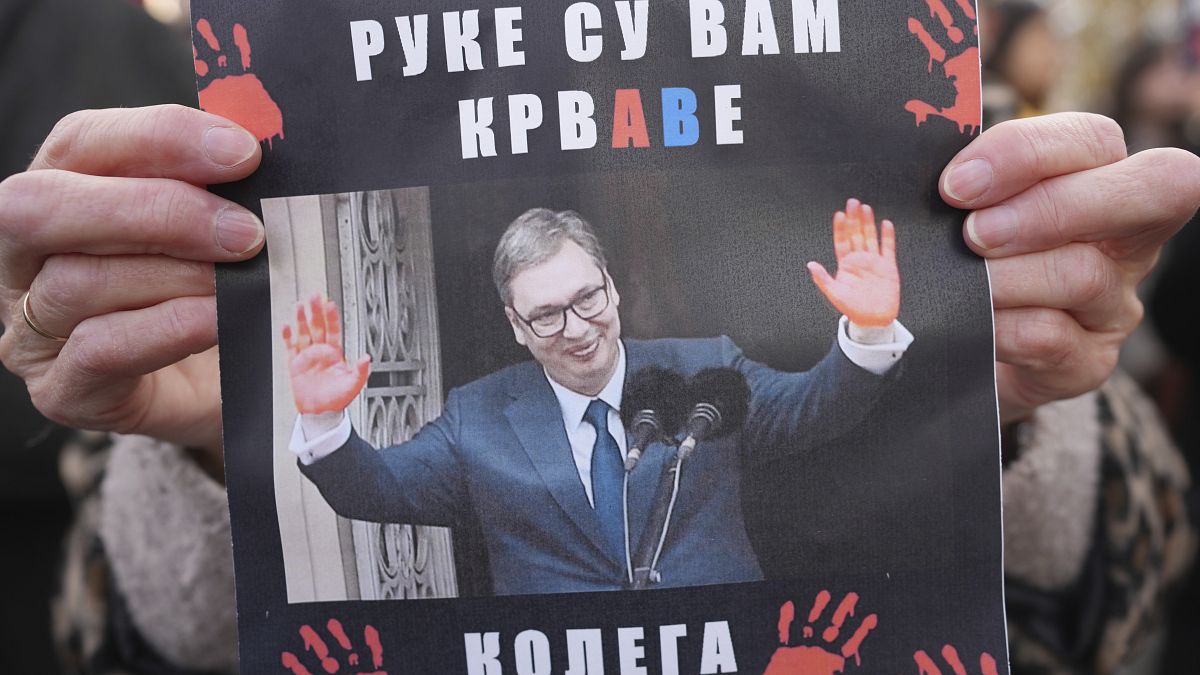Aleksandar Vučić’s pledge contrasts with a video he released on Tuesday, in which he accused foreign powers of financing the protests.
Serbian president Aleksandar Vučić has said he will bow to protesters’ demands just a day after claiming, without citing evidence, that their actions were being financed by the West.
Anger has spread across the Balkan country since 15 people were killed on 1 November when a renovated concrete awning collapsed at a train station in the northern city of Novi Sad.
Opposition politicians and protesting students have blamed the government for the disaster, suggesting corruption and negligence were to blame.
Speaking on Wednesday in Belgrade, Vučić said that all those arrested during the demonstrations had now been released. He also promised to pardon protesters convicted in future trials.
Information about the reconstruction work that took place at the railway station in Novi Sad will be made public this week, he added.
The president’s words on Wednesday contrasted sharply with comments he made in a video posted on Instagram the previous day.
In a defiant message, Vučić accused foreign powers of financing the protests in an attempt to oust him from power.
“I will fight for Serbia and serve only my Serbian people and all other citizens of Serbia, I will never serve foreigners, those who seek to defeat, humiliate, and destroy Serbia,” he said.
Vučić then mentioned Bashar al-Assad, the Syrian dictator who was deposed last week and fled with his family Russia.
“If they think I’m Assad, and that I’ll run away somewhere, I will not,” Vučić said, claiming that in the coming days he would provide details of “how much money was paid over the last four years to destroy Serbia“.
Under Vučić’s leadership, Serbia has continued with its aspiration of joining the EU while also maintaining close ties with Russia and China. As part of this balancing act, Belgrade, touting its neutrality, has refused to be part of Western sanctions imposed upon Russia over its full-scale invasion of Ukraine.
Serbian politicians recently started to deliberate a bill that would establish a “foreign agents” registry, with the aim of regulating organisations that receive half of their funds from abroad. The passing of similar legislation in Russia led to a clampdown on civil society and a reduction in the freedom of expression.
Critics of Vučić, who joined the far-right Radical Party as a young man and is now part of the ruling Serbian Progressive Party, say the country has become increasingly authoritarian under his watch. He became prime minister in 2014 and president in 2017.
Political rights and civil liberties have “steadily eroded” in recent years, according to the US-based NGO Freedom House.
Additional sources • AP

